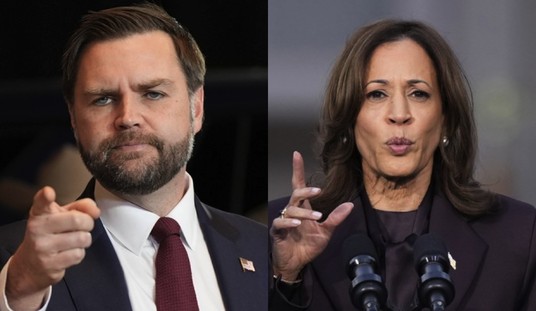In the past, we have chronicled the cycle of capitulation that is so emblematic of Republicans in the 112th Congress. It goes like this: Democrats propose some odious and profligate legislative idea or budget bill and call for tax hikes as “pay-fors.”. Conservatives advocate that we uproot the entire premise of the destructive legislation by drawing a line in the sand on the principles that got us elected. Republican leaders eschew conservative principles and acquiesce to the premise that the Democrat legislation is a priority too big to fail. They telegraph the message to Democrats that they will never let the proposal fail, but promise to make them pay for it with reforms or other spending offsets. These reforms or offsets are just as offensive to Democrats as the conservative proposal. Democrats demand tax increases to pay for them. Ultimately, we get the reauthorization of the program without spending offsets or tax increases.
Then, Republicans unequivocally swear to stick it to the Democrats during the next budget battle by finally utilizing their leverage. Repeat and rinse and needed.
This is what has transpired with every reauthorization battle over some big-government program. The latest is the circuitous cycle of capitulation is the extension of the Stafford student loan interest cuts scheduled to expire June 1.
Democrats insidiously used those precious stuuudents as political human shields to push reauthorization of the subsidized interest rates on Stafford loans – a bill that was supposed to be temporary when it first passed in 2007. Instead of going on offense and explaining how it is these very subsidies that have fueled the education bubble, engendering a need for the subsidies in the first place, Republicans ran for the hills. “Why, of course we support the extension.” How dare you accuse us of opposing a Nancy Pelosi-era law, they contended. “We just want it to be paid for.” In that vein, the House passed the $6 billion extension on April 27, along with a provision that pays for the cost by eliminating a preventative healthcare program established under Obamacare.
Today, Senate Democrats will bring their bill to the floor, and Republicans have already promised not to filibuster it. Of course, the Senate bill contains tax increases as pay-fors instead of spending cuts. This, from Roll Call:
Republicans are determined to stop Democrats from turning this week’s student loan interest rate debate into a political issue, even as the GOP prepares to oppose parts of the Democratic plan.
“The conversation is now over the pay-for, not whether to do it, as Democrats had hoped,” a Senate GOP aide said, adding Republicans want to pay for it in a responsible way.
We saw the same thing two weeks ago with the Violence Against Women Act and the postal bailout bill. The new strategy is to diffuse Democrats’ perceived political advantage on demagoguery by….agreeing to pass their bills! I guess that’s one way to win the political battle; when you can’t beat em’ join em’.
It’s important to note that there are numerous deadlines approaching for reauthorization of big-government programs and legislation. As the Hill reports, there are nine looming deadlines on the legislative calendar, including the export-Import Bank, National Flood Insurance Program, the Farm Bill, and the highway bill. On all these issues, Republicans have an opportunity to draw bold-colored contrasts against statist and anti-free-market policies. Sadly, they’ve chosen to accept the premise of these extensions, and in some cases, robust expansions. Their only quibble with Democrats is how to “pay for” these programs. And as we have seen throughout the cycle of capitulation, once Republicans show their cards by agreeing to the extension, Democrats have no incentive to negotiate on the pay-fors.
At some point, we need to ask the obvious question: why do we need Republicans to figure out how to pay for Democrat programs that self-perpetuate the need for more extensions and more pay-fors down the road? Why do we need another party to merely serve as more prudent stewards of the politburo?
In theory, one could explicate this strategy of agreeing with Democrats on some ancillary, yet popular issues, as a pragmatic strategy to save our political capital for “bigger issues.” To play devil’s advocate, maybe we should disarm Obama of some issues like VAWA and student loans that he has successfully demagogued, while saving our energy and political capital for the consummate battles, such as entitlement reform and a balanced budget amendment.
The retort is very simple: if Republicans lack the moxie to oppose Democrats on these “smaller issues” when they only control one branch of government, does anyone really believe they will have the guts to pursue entitlement reform, especially with full control of government, along with the political responsibility that such broad power entails?
Then again, we can always “reauthorize” the status quo on Social Security, Medicare, Medicaid, and welfare. We’ll just find a way to pay for it.
Cross-posted from The Madison Project














Join the conversation as a VIP Member